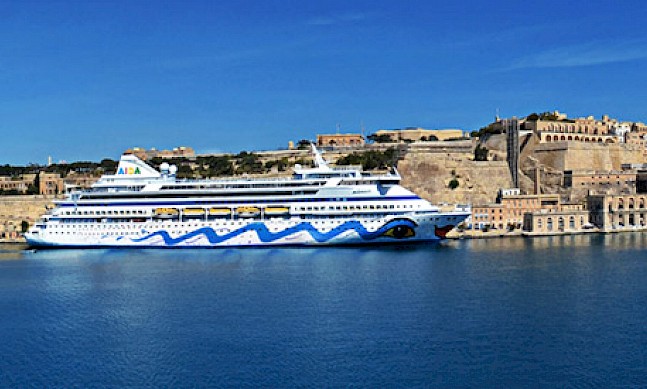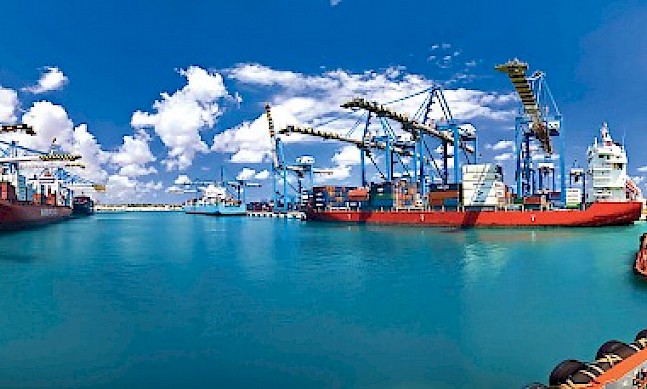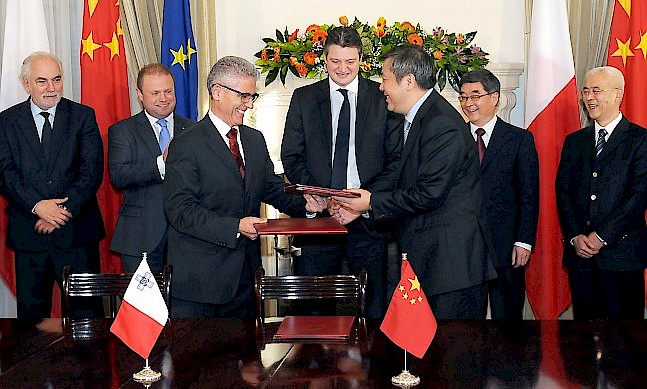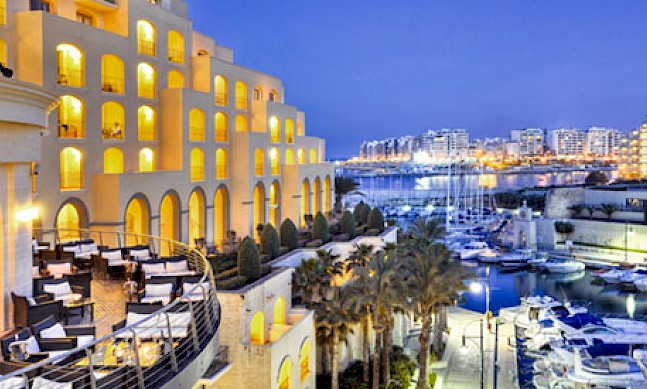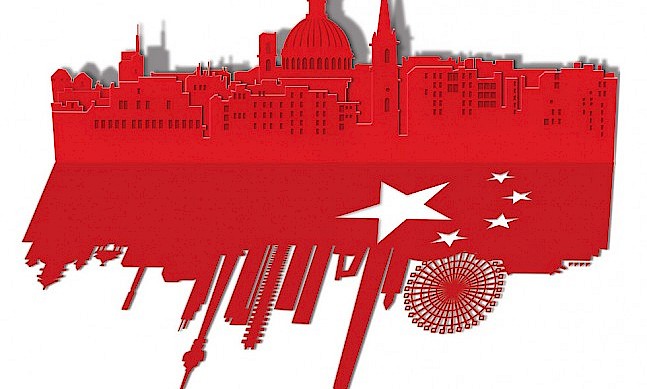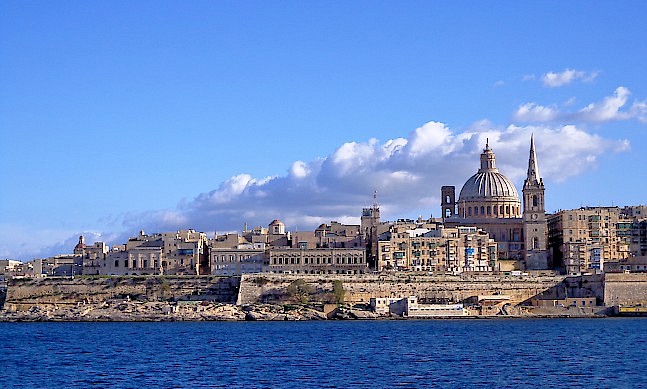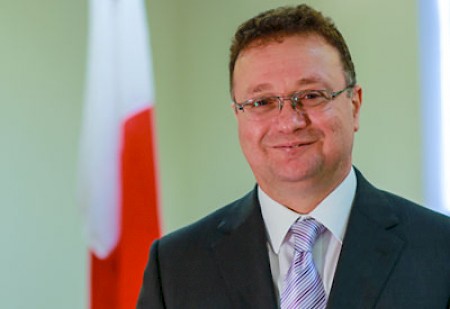
As director and deputy CEO of multinational manufacturing Group Toly Products, as well as having served on various councils including the Federation of Industry, the Chamber of Commerce, and the Malta Council for Economic and Social Development, William Wait brings solid private sector experience to Malta’s Water Services Corporation. He met with The Report Company to talk about his strategy for the organisation.
The Report Company: You were appointed chairman of Water Services Corporation in December 2013. How would you describe your approach to the company?
William Wait: I am all about people. When I moved from the private sector to the public sector, some suggested that I was not thinking clearly. There’s a perception that the public sector is a bureaucratic place where people are lazy. I found that this is absolutely not the case. Here we have excellent people who love what they do. They own the corporation in terms of strategic goals, and on a daily basis they are coming up with new ideas of how to improve.
We need to start showing the general public what a corporation like the Water Services Corporation is doing and the amount of good things that are happening here, which people out there don’t even know. I think one of the first things I want to improve is communicating what the Water Services Corporation is doing and what it wants to do. Everyone in Malta is our client. All the tourists and foreigners who chose to make Malta their home is our client. Everyone uses water and everyone produces wastewater.
I need to have a utility which is self-financing and which is sustainable financially. From 31 st March we have reduced our tariffs by 5 percent. To do this wasn’t an easy task, because we had to justify to the Malta Resources Authority that we are going to be sustainable in the future. We need to produce good quality water at the cheapest price. Water is at the end of the day a basic human right so we need to make it affordable for everyone across the board. We cannot have families falling below the poverty line just because the cost of utilities is too high.
Of course with my internationalisation experience, I also want to internationalise the corporation. At Toly I was a key player in a team that took the Group across the World. I want to internationalise the corporation to such point that we might also get into projects outside Malta. I also want to build on the international networking of the corporation. There are a lot of countries from which we can learn through the way they do things and we can share and exchange our ideas. We are open to ideas and suggestions.
Another aim of mine is to resurrect the Institute of Water Technology. This was one of the best institutes in the Mediterranean where water technology studies were being conducted. We were training people and awarding degrees and diplomas to people from North Africa and the southern Mediterranean. It was doing a sterling job, but for some a decision was taken to water down the institute. This was wrong, because as Malta has limited resources, one of the major assets are people and your people become valuable when you constantly train them. In line with this strategy we are currently collaborating more with the University of Malta and MCAST.
“We encourage the creation of new technologies. When I came here I found a group of very good engineers who had just won the Malta Engineering Excellence Award on a project they had done.”Tweet This
TRC: Have you identified potential target markets for internationalisation?
WW: We are looking at moving mainly into North Africa. We are talking to them and it’s all being coordinated through the World Bank.
In parallel to that we are also talking to other countries which possibly could use Malta as a hub to tap the water industry in Africa.
Besides financial motivated projects we are also after projects which improve the standard of living of people living in less privileged countries. One in particular is being coordinated with an NGO in Malta. We are donating a drilling rig to Ethiopia so that they can tap water which exists but so far has been inaccessible.
TRC: Water is a scarce resource in Malta. How do you ensure that you produce enough to meet the country’s needs?
WW: Whilst the production of water through desalination or reverse osmosis is more expensive, I must make it clear that in Malta we do not have a water capacity issue. In fact, in the very recent past we had five reverse osmosis plants, and two of them are now closed. Today we are much more efficient in our distribution of water and therefore we don’t need to produce as much as we used to. On average today we produce about 60 percent of our water through reverse osmosis and 40 percent comes from the natural aquifer, the water table. We then mix them into reservoirs and distribute to our clients. Technically speaking, we can produce all our water even at peak demand times from our reverse osmosis plants, so we could stop extracting water from the water table if we wanted to go down that route, but we try and combine both for our production needs.
TRC: Are there ways to try to reduce the costs of water production?
WW: There are initiatives happening on a daily basis. In 2008 we started on a project to reduce our energy consumption. We were using 6.8kWh per metric tonne of water and now we’re using 4kWh. On a regular basis our engineers come out with innovative ideas on how to be more efficient. I thought I would have to come here and start pushing people to become creative, but in actual fact I need to keep up with their creativity. I have engineers who are considered to be world experts in their respective fields of specialisation.
We have excess capacity here and we don’t have plans to build new water generation plants. We do have plans however to make those plants more efficient, investing and making sure that there is a return. We don’t just want to build plants for no reason. We are looking at maximising the current resources and making them more efficient.
Then there is the other part of the Water Services Corporation, which is the wastewater management part. There we are utilising EU funds to put in a further polishing process for water which then makes that water available for industry and agriculture.
“We are putting everything together in one holistic plan to make sure everyone is focussed and moving in the right direction. We want to produce good quality water at the cheapest price for our customers and we want to make sure that we take it back as wastewater and treat it so we can make good use of that water.”Tweet This
TRC: How important is innovation to the company?
WW: We encourage the creation of new technologies. When I came here I found a group of very good engineers who had just won the Malta Engineering Excellence Award on a project they had done. Every day literally they live water generation and what they are focussed on is taking all the technology available and putting it together for the success of the corporation and making sure that there is good quality water at the best price to our customer. Honestly I cannot ask for more than that.
TRC: How are you ensuring that the work you do is environmentally friendly?
WW: We take our environmental commitments very, very seriously. One thing that we have done as a corporation over the past five years is reduce our energy consumption by about 33 percent which means that we saved around 34 million kWH of electricity. Our CO2 emissions have reduced by approximately 29,000 tonnes per year. Besides that, we have put in a world class water leakage reduction system and as a result have been able to reduce our production of water from 50 million cubic metres to just under 30 million cubic metres. The rest was being wasted mainly through leakages. We also treat 100 percent of our sewage in Malta. We are the first country in the Mediterranean to do so and the seventh in the EU. We believe that we are quite advanced in this sector of wastewater management.
TRC: What is your objective for the future?
WW: We would like to see more respect towards water. I am very pleased that our minister has taken the initiative to kick start a National Water Plan for Malta. We had a conference launching this plan which was very well attended. We believe that water should not be a political issue; it should be a consensus item of discussion in our country. We are putting everything together in one holistic plan to make sure everyone is focussed and moving in the right direction. We want to produce good quality water at the cheapest price for our customers and we want to make sure that we take it back as wastewater and treat it so we can make good use of that water.


